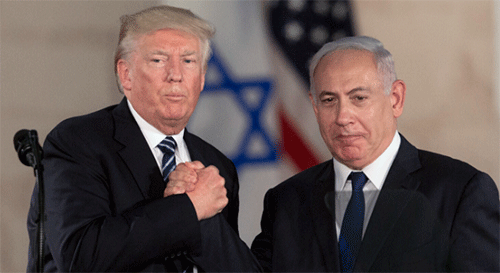Trump Promises Lasting Peace in the Middle East – But the Path is Far from Easy
TEL AVIV, Israel (AP) — As Donald Trump prepares to return to the U.S. presidency, he faces a Middle East engulfed in unprecedented conflict and instability. Trump has pledged to restore peace, yet his strong support for Israel, combined with calls for a quick resolution in Gaza, and the influence of isolationist views within his own party, bring complex questions about how his leadership will impact this volatile region.
If cease-fires remain elusive, Trump will enter office as the war in Gaza rages on, with Israel continuing its offensives against Hezbollah in Lebanon. Tensions between Iran and Israel persist, along with Israel’s ongoing conflicts with Iranian-backed groups in Iraq and Yemen. Iran’s nuclear program remains a top concern for Israel, adding to the challenges Trump will face.
Trump’s Peace Promises: Vision or Vague Aspiration?
During his campaign, Trump committed to bringing peace to the Middle East. “Get it over with and let’s get back to peace and stop killing people,” he remarked about the Gaza conflict in an April interview.
The conflict escalated after Hamas attacked Israel on October 7, 2023, leading to the deaths of 1,200 Israelis and the abduction of 250 people, many of whom remain held in Gaza. In response, Israel’s offensive has resulted in over 43,000 deaths, according to Gaza health officials, who report that more than half of the casualties are women and children.
This conflict has created a humanitarian crisis in Gaza and increased Israel’s international isolation. Two international courts are investigating potential war crimes, and protests on U.S. campuses have sparked debates on America’s role as Israel’s primary military and diplomatic supporter.
Efforts by international mediators from the U.S., Egypt, and Qatar to secure a cease-fire have thus far been unsuccessful. Trump has encouraged Israel to “finish the job” and eliminate Hamas, though he has not clarified his strategy. This ambiguity raises questions. “Does ‘finish the job’ mean Israel has free rein to eliminate Hamas? Or does it mean the war should end now?” asks David Makovsky, an expert on Arab-Israel relations.
Netanyahu Hopes for Strong Backing from a Trump Administration
The uncertain nature of Trump’s approach also extends to his relationship with Israeli Prime Minister Benjamin Netanyahu. During Trump’s first term, he openly supported Netanyahu’s policies, including withdrawing from an international deal intended to curb Iran’s nuclear ambitions, a deal Netanyahu opposed.
Trump’s recognition of Jerusalem as Israel’s capital and his approval of Israel’s claim to the Golan Heights strengthened Israel’s position. Additionally, his peace plan for Palestine was largely viewed as favoring Israel. Under Trump’s presidency, Israeli settlement construction in the West Bank, considered a significant obstacle to Palestinian statehood, surged.
One of Trump’s key achievements was securing agreements between Israel and four Arab nations to normalize relations, an accomplishment Netanyahu hopes to replicate with Saudi Arabia.
- “Donald Trump returns to the presidency with a vow to bring peace to the Middle East, but his strong stance on Israel and approach to regional conflicts present a complex path forward.”
- “With ongoing wars in Gaza, Lebanon, and tensions with Iran, Trump’s second term promises ambitious peace efforts in the Middle East, yet achieving stability won’t be straightforward.”
- “Amid escalating conflicts in Gaza and beyond, Trump faces a formidable challenge in fulfilling his promise of Middle East peace—raising questions about his strategy and approach.”
- “Trump’s pledge to resolve conflicts in the Middle East comes at a critical time, as Israel grapples with security threats and international isolation. What’s his plan for peace?”
- “As Trump re-enters office, the Middle East is embroiled in multiple conflicts. His commitment to a swift resolution raises hopes—and concerns about the path to peace.”
This article was rewritten by JournosNews.com based on verified reporting from trusted sources. The content has been independently reviewed, fact-checked, and edited for accuracy, neutrality, tone, and global readability in accordance with Google News and AdSense standards.
All opinions, quotes, or statements from contributors, experts, or sourced organizations do not necessarily reflect the views of JournosNews.com. JournosNews.com maintains full editorial independence from any external funders, sponsors, or organizations.
Stay informed with JournosNews.com — your trusted source for verified global reporting and in-depth analysis. Follow us on Google News, BlueSky, and X for real-time updates.














